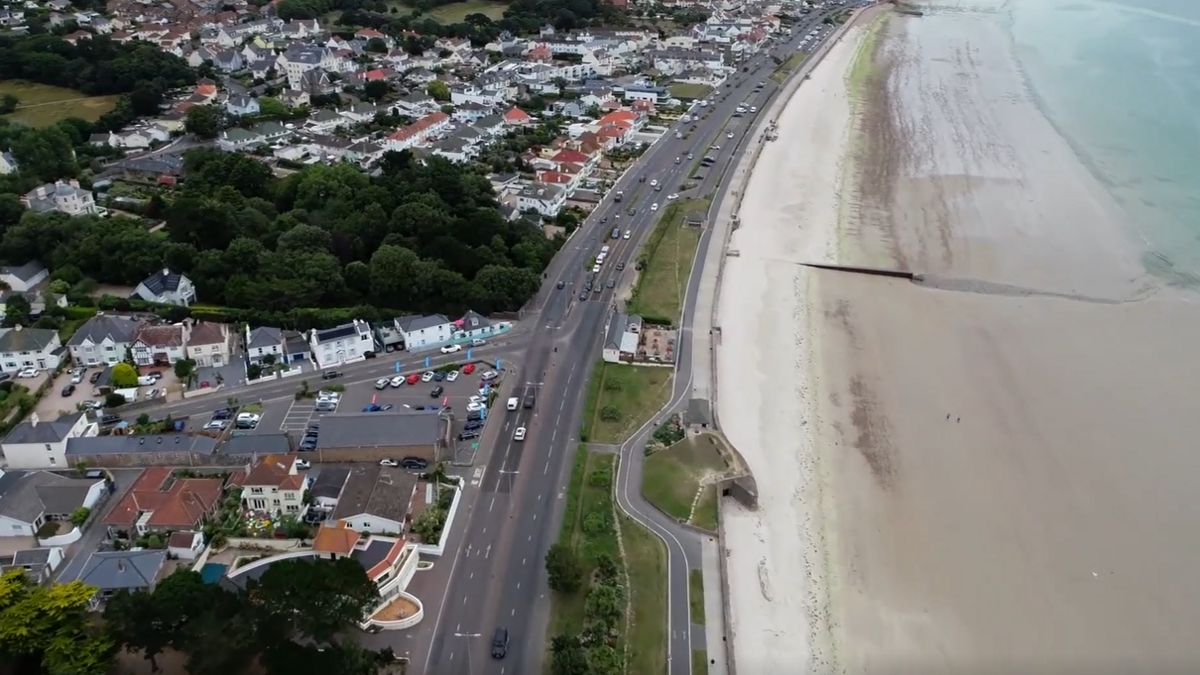More action needed to hit net zero by 2050
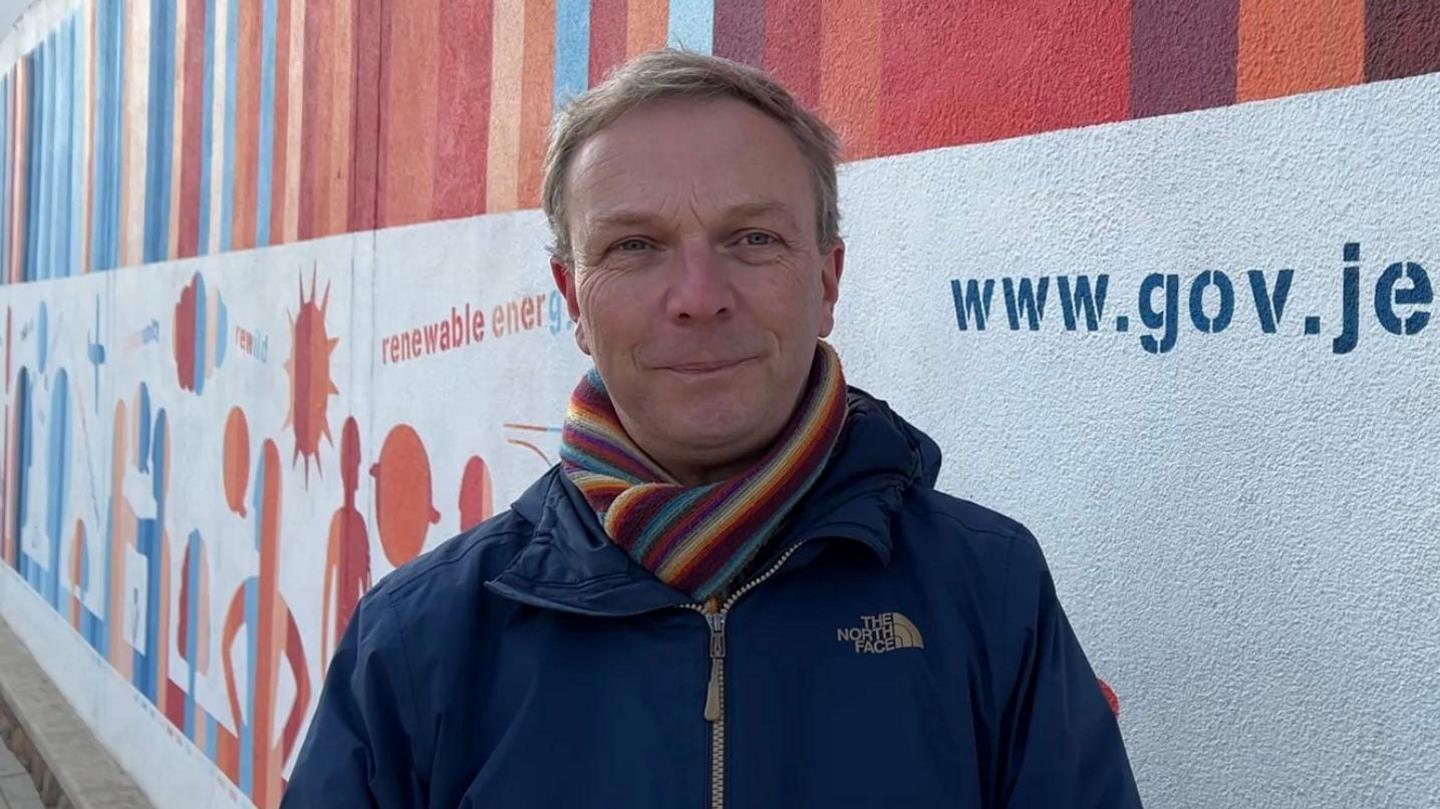
Paul Aked said the rising temperatures had "an impact"
- Published
More work must be done to hit net zero by 2050, a meteorologist has said.
The island recorded its seventh warmest year in 2024, with the Jersey Met Office saying the average temperature in 2024 was 12.94C (55.29F).
A 131-striped mural at the Waterfront represents the years from 1894 to 2024 with blue stripes depicting low temperatures and varying shades of red highlighting increased temperatures.
Paul Aked, head of meteorology at Jersey Met, said: "We are seeing far more red stripes and those darker red stripes as well."
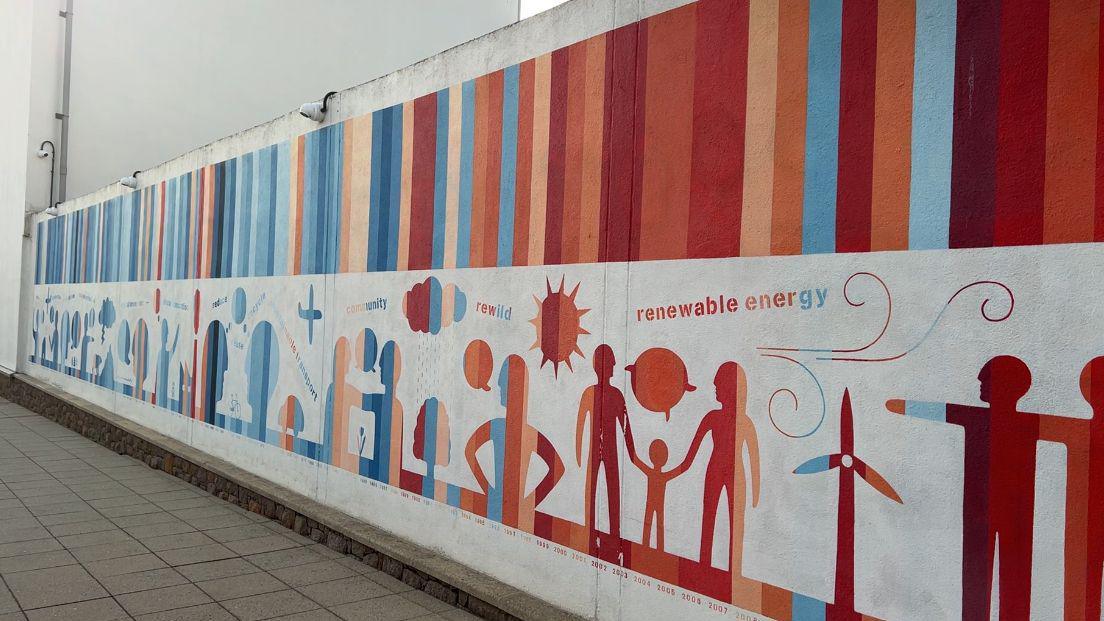
The mural is placed by the avenue as a visual representation for drivers and pedestrians to see
In August, the environment minister said the carbon neutral roadmap progress report showed Jersey was making "good progress" on its way to becoming net zero.
Mr Aked said the island needed "to keep working".
He said: "We need to keep doing things that will bring our net zero down or get us closer to net zero, but we're not going to see an immediate blue stripe or lots of blue stripes.
"This is going to take a little while and we need to keep doing that over time, then hopefully as we look into the future maybe ten, 15, 20 years on, we will see that impacting on the global climate and local climate."
Follow BBC Jersey on X, external and Facebook, external. Send your story ideas to channel.islands@bbc.co.uk, external.
- Published12 February
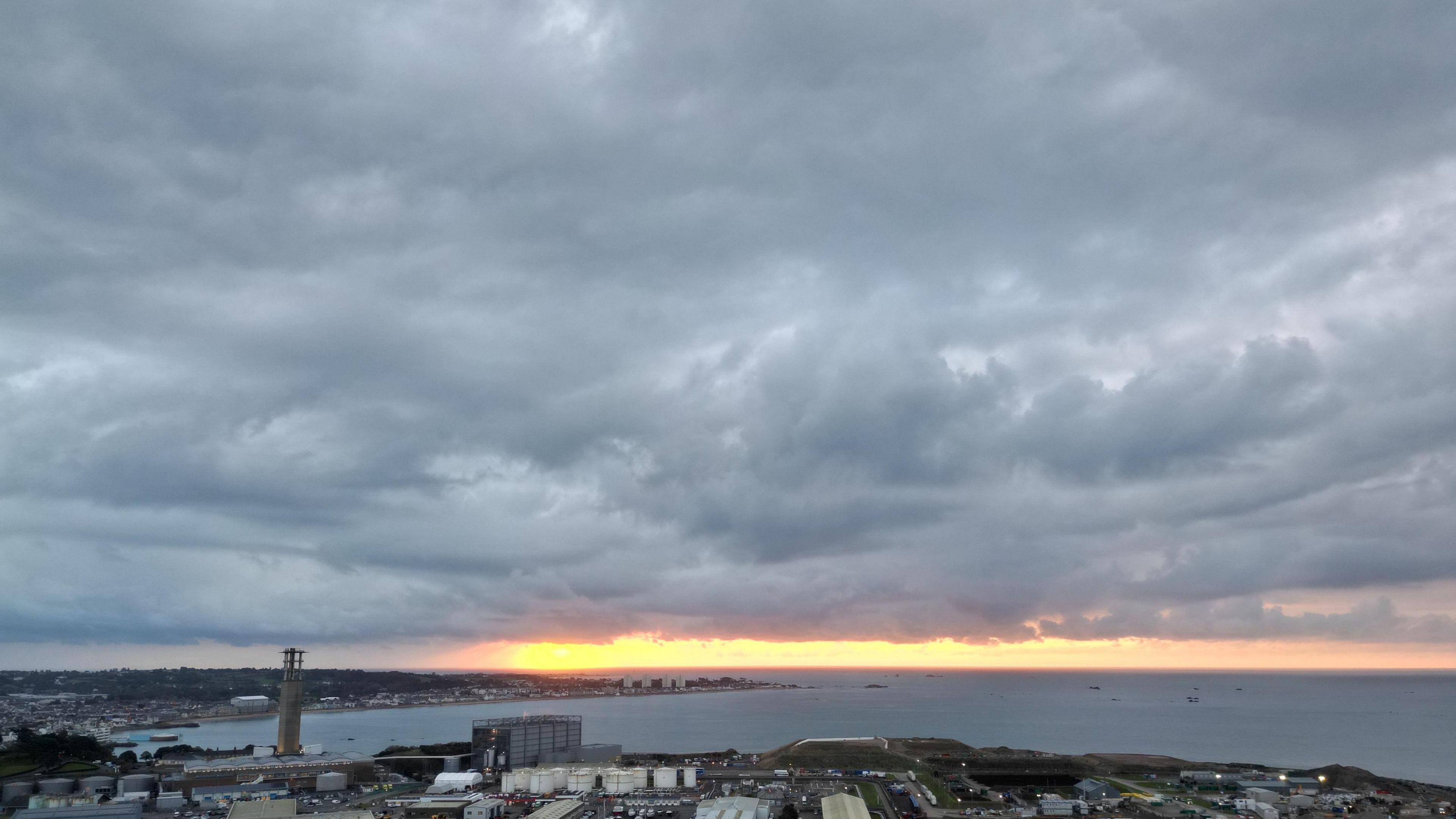
- Published14 August 2024
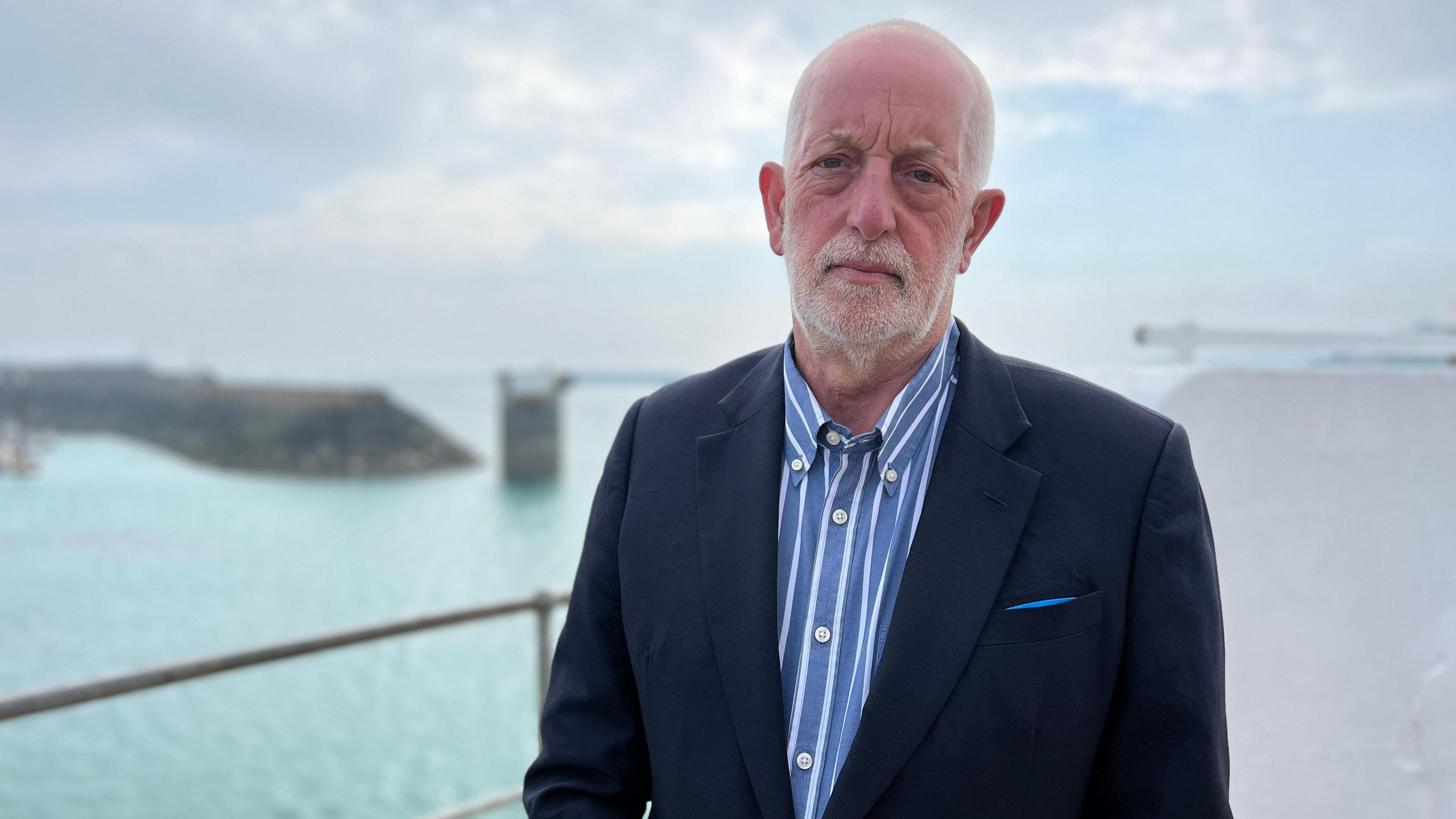
- Published18 July 2023
